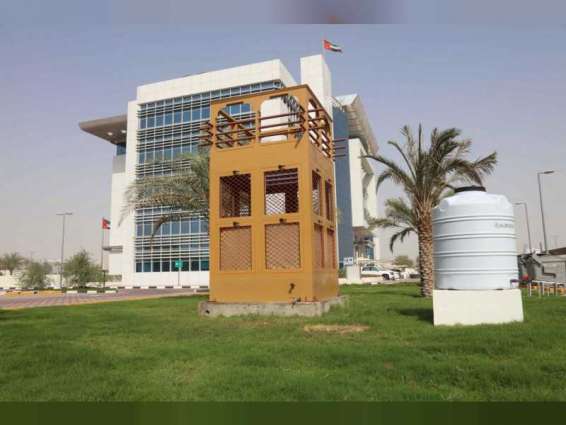DUBAI, (Pakistan Point News - 30th Sep, 2019) The Ministry of Climate Change and Environment, MoCCAE, on Monday announced the launch of its 'Green Barjeel' research project that aims to leverage innovative methods to grow microalgae biomass with a high lipid content in tower-shaped structures.
Run in cooperation with American University of Sharjah and Khalifa University, the project involves collecting algae from the UAE’s desert ponds and cultivating them, said a press release issued by the ministry on Monday.
The process offers a host of benefits, including sequestering CO2 and removing dust particles from the ambient air to reduce greenhouse gas emissions and other pollutants. In addition, the structures can serve as passive cooling systems for use in public spaces.
The research project also seeks to examine and classify the diverse indigenous algal strains and test the potential of using them to produce biofuel and biofertilisers. Furthermore, the scope includes an experimental study on the safe and sustainable removal of Nitrogen oxides and Sulfur oxides from the atmosphere.
Commenting on the project, Dr. Thani bin Ahmed Al Zeyoudi, Minister of Climate Change and Environment, said, "In line with the steadfast efforts of His Highness Sheikh Mohammed bin Rashid Al Maktoum, Vice President, Prime Minister and Ruler of Dubai, to encourage disruptive innovation across all sectors as the means to ensure a better future for current and next generations, we support environmental research and development and integrate the latest innovations to help achieve ecological sustainability and boost climate action."
The Green Barjeel project, he noted, aims to explore the prospects for using algal strains that have adapted to the UAE’s climate to provide an alternative source of energy and nutrients that enhance agricultural production.
"The participating scientists will capture the outcomes of the project in the scientific literature that can be incorporated into educational curricula or built on in developing further innovations," Dr. Al Zeyoudi concluded.




